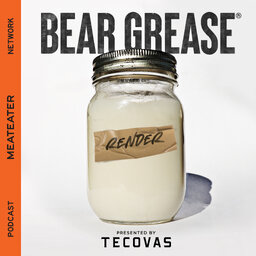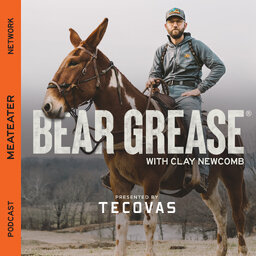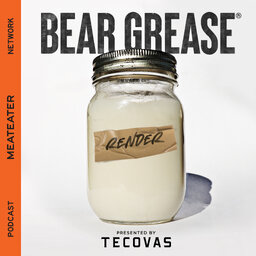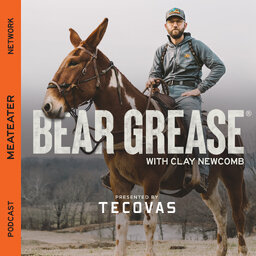Ep. 10: Moonshine, NASCAR, and Bear Hunting (Appalachian Culture, Part 2)
On this episode, Clay continues to explore southern Appalachian culture. He interviews Roy Clark about his bear hunting and Plott hounds. You’ll hear both laughter and tears. Then we dive in with Dr. Daniel Pierce to learn about the complex history of moonshine, prohibition, and it’s interesting connection to NASCAR. Lastly, we explore with a curious eye the snake handling churches of Appalachia. We’re not making heroes or villains, we’re just telling an American story.
Learn more about your ad-choices at https://www.iheartpodcastnetwork.com
In 1 playlist(s)
Bear Grease
Home to the Bear Grease podcast and Bear Grease Render show with Clay Newcomb, and This Country Life…Social links
Follow podcast
Recent clips

Ep. 423: Render - Villines Logging
1:34:24

Ep. 420: American Loggers - Part 1
46:17

Ep. 418: Render - CBS Sunday Morning Behind-the-Scenes
1:13:25
 Bear Grease
Bear Grease